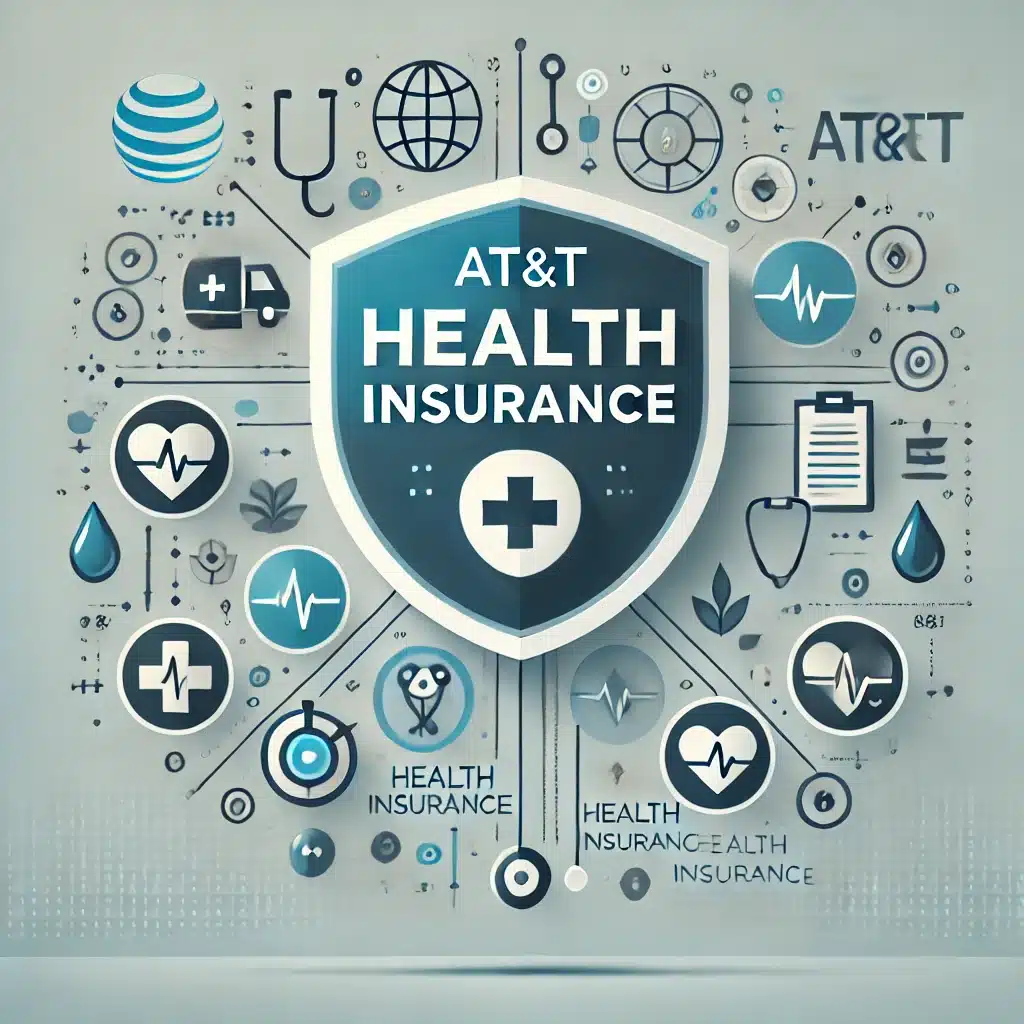AT&T offers a variety of health insurance plans to meet the diverse needs of its employees and their families. These plans include medical, dental, and vision coverage, ensuring comprehensive care for all participants. AT&T’s commitment to providing robust health benefits is evident in the range of options available, catering to different health requirements and preferences.
Eligibility Criteria for AT&T Health Insurance
Employee Eligibility
AT&T employees are eligible for health insurance benefits if they meet certain criteria. Full-time employees are typically covered, while part-time employees may need to meet specific work-hour requirements. This can include information to comply with an employment or other contract or work agreement.
Retiree Eligibility
Once you turn age 65, you are Medicare-eligible and will have to transition out of AT&T’s retiree health care plan and into Medicare. You may continue to receive health care benefits from AT&T, but you and your Medicare-eligible dependents are required to enroll in Medicare Part A (hospital benefits) and Part B (doctor benefits). These two parts cover about 80% of health care benefits for individuals, so it’s important to consider your supplemental coverage options.
Dependent Eligibility
Dependents of AT&T employees and retirees may also be eligible for health insurance coverage. This includes spouses, children, and in some cases, domestic partners. Eligibility criteria for dependents can vary, so it’s important to review the specific requirements to ensure coverage.
Understanding Medicare and AT&T Health Insurance

When you turn 65, you become eligible for Medicare. At this point, you must transition from AT&T’s retiree health care plan to Medicare. You and your Medicare-eligible dependents need to enroll in Medicare Part A (hospital benefits) and Part B (doctor benefits). These two parts cover about 80% of health care costs, so it’s crucial to look into your supplemental coverage options.
AT&T offers supplemental insurance through Aon Hewitt to cover areas where Medicare falls short, such as prescription drugs. This additional coverage helps fill the gaps, ensuring you have comprehensive health care.
As you retire, you can keep your current plan, but the cost may go up. Alternatively, you can switch to a different plan during a special enrollment window. Each year, you have the chance to change plans during open enrollment. Since 2022, AT&T no longer offers a subsidy to help with your monthly premiums.
Important: Once you turn 65, you must enroll in Medicare to continue receiving health care benefits from AT&T.
Benefits of AT&T Health Insurance
AT&T health insurance offers a range of benefits designed to meet the diverse needs of its employees and their families. Medical benefits include comprehensive coverage for doctor visits, hospital stays, and preventive care. Employees can also access on-site vaccination clinics, making it easier to stay healthy.
Medical Benefits
AT&T provides extensive medical benefits that cover a wide array of services. These include routine check-ups, emergency care, and specialized treatments. The plans are designed to ensure that employees and their families receive the necessary care without financial strain.
Dental Benefits
Dental plans under AT&T health insurance cover preventive services like cleanings and exams, as well as more complex procedures such as fillings, crowns, and orthodontics. This ensures that employees can maintain good oral health, which is crucial for overall well-being.
Vision Benefits
Vision plans offer coverage for eye exams, glasses, and contact lenses. Regular eye check-ups are essential for detecting issues early and maintaining good vision health. AT&T’s vision benefits make it easier for employees to access these important services.
AT&T Health Insurance for Pre-Medicare Retirees
Modified Rule of 75
Employees who meet the Modified Rule of 75 may qualify for retiree medical, dental, vision, and life insurance benefits. The plans available to you will depend on your service date, retirement date, and other factors.
Available Plans
Pre-Medicare retirees have access to a variety of plans. These include medical, dental, and vision plans. The specific options you can choose from will depend on your employment history and other criteria.
Cost and Coverage
The cost of your health insurance will vary based on several factors, including your years of service and retirement age. It’s important to review your options carefully to understand what coverage you will receive and how much it will cost.
One of the biggest expenses for most people in retirement is health care. What benefits are available to you depends on your eligibility for Medicare, which kicks in at age 65.
AT&T Health Insurance for Medicare-Eligible Retirees
When you turn 65, you become eligible for Medicare and will need to transition from AT&T’s retiree health care plan to Medicare. You must enroll in Medicare Part A and Part B to continue receiving health care benefits from AT&T. These parts cover about 80% of your health care costs, so it’s important to look into supplemental coverage options.
Enrollment Requirements
To keep your AT&T health benefits, you and your Medicare-eligible dependents must sign up for Medicare Part A (hospital benefits) and Part B (doctor benefits). This is crucial as it ensures you get the most out of your health care coverage.
Coverage Details
Medicare Part A and Part B cover a significant portion of your health care needs, but not everything. You will need additional insurance to cover gaps, such as prescription drugs. AT&T offers plans through Aon Hewitt to help fill these gaps.
Supplemental Insurance
AT&T retirees may benefit from Medigap coverage. Medigap helps protect more than 14.5 million people by covering costs that Medicare does not. This includes copayments, coinsurance, and deductibles. It’s a good idea to explore these options to ensure comprehensive coverage.
Additional Services and Coverage Options
Expanded Services
AT&T offers a variety of expanded services that may be beneficial to participants. These include coverage for dental services provided in a medical care facility, doula services, and childbirth classes. This change will allow us to provide additional benefits with your plan and continue to deliver the great wireless service you expect.
Gender Affirmation Coverage
AT&T’s health insurance plans include gender affirmation coverage. This ensures that individuals seeking gender-affirming treatments and procedures have access to the necessary medical care. The coverage is designed to support the health and well-being of all participants.
Experimental CarePlus Benefits
The Experimental CarePlus program offers coverage for innovative treatments and services that are not typically included in standard health insurance plans. This includes augmented reality/virtual reality gaming digital therapy for children with attention deficit hyperactivity disorder, as well as expanded coverage for speech, occupational, and physical therapy. Want other options? The program aims to provide participants with access to cutting-edge medical care that can improve their quality of life.
Life Insurance Options with AT&T
AT&T offers life insurance benefits to its employees, ensuring financial security for their families. There are two main types of life insurance available: Basic Life Insurance and Supplemental Life Insurance.
Basic Life Insurance
Basic Life Insurance is provided by AT&T at no cost to the employee. For most employees, this coverage is equal to one year of their salary. If you meet the Modified Rule of 75, you are eligible for this benefit even after retirement. The amount of coverage for retirees depends on factors like age, job classification, and salary.
Supplemental Life Insurance
Employees can also opt for Supplemental Life Insurance, which offers additional coverage beyond the basic plan. This extra coverage can be purchased through AT&T’s group plan, making it a cost-effective option. The cost and amount of coverage depend on your job classification, salary, and years of service. In retirement, your age will also impact the cost and eligibility for this plan.
Burial life insurance is one of the most important benefits that AT&T retirees receive. As of Jan. 1, 2022, the company slashed its benefits.
Eligibility and Coverage Details
Eligibility for both Basic and Supplemental Life Insurance is determined by your employment status and other factors. It’s important to review your options and choose the plan that best fits your needs. If you’re unsure, AT&T offers retirement planning services to help you make an informed decision.
Exclusions and Limitations of AT&T Health Insurance
Common Exclusions
AT&T health insurance plans come with certain exclusions. For instance, not all medical procedures are covered. All benefits are subject to the definitions, limitations, and exclusions in the plan brochure. It’s important to read the brochure carefully before making any decisions.
Coverage Limitations
There are also limitations on the coverage provided. Some services may only be partially covered, or not at all. For example, experimental treatments might not be included. Always check the specific details of your plan to understand what is and isn’t covered.
Legal Notices
Health benefits and health insurance plans contain exclusions and limitations. Make sure to see all legal notices related to your plan. This will help you understand your rights and any restrictions that apply.
It’s crucial to be aware of the exclusions and limitations in your health insurance plan to avoid unexpected costs and ensure you have the coverage you need.
Cost Factors and Premiums
Understanding the cost factors and premiums of AT&T health insurance is crucial for both employees and retirees. Several elements influence the premiums you will pay, including your employment classification, years of service, and retirement age.
Employment Classification Impact
Your employment classification significantly affects your health insurance premiums. For instance, active employees and retirees have different premium structures. Active employees might see higher premiums due to ongoing employment benefits, while retirees could have different rates based on their retirement date.
Years of Service
The number of years you have worked at AT&T can also impact your premiums. Generally, longer service years may lead to lower premiums, as the company often rewards long-term employees with better rates. This is especially true for those who retired before August 31, 1992, who enjoy more favorable rates.
Retirement Age
Your age at retirement plays a role in determining your health insurance costs. Retirees who leave the company at an earlier age might face higher premiums compared to those who retire later. This is because the cost to the plan of providing coverage can vary significantly based on the retiree’s age and health status.
It’s important to review all these factors carefully to understand how they affect your health insurance premiums and to plan accordingly.
How to Enroll in AT&T Health Insurance
Enrollment Process
To start the enrollment process, visit the AT&T benefits website. If you’re signing in for the first time, select ‘connect to provider’ and choose AT&T. Then, sign in with the AT&T user ID and password for the AT&T service that you use. Follow the prompts to select your desired health insurance plan.
Required Documentation
Make sure to have all necessary documents ready. This includes your Social Security number, proof of employment, and any dependent information. Having these documents on hand will make the process smoother and quicker.
Important Deadlines
Be aware of the enrollment deadlines. Missing these deadlines can result in a delay or loss of coverage. Typically, there are specific windows for open enrollment and special enrollment periods. Mark these dates on your calendar to ensure you don’t miss out on your health insurance benefits.
Conclusion
Understanding AT&T’s health insurance options can help you make informed decisions about your healthcare needs. Whether you’re an employee or a retiree, it’s important to know what benefits are available to you and how they can support your health and well-being. From medical, dental, and vision coverage to life insurance and supplemental plans, AT&T offers a variety of options to fit different needs. Remember to review your eligibility and the specifics of each plan to ensure you get the best coverage for you and your family. Stay informed and take advantage of the resources AT&T provides to maintain a healthy and secure future.
Frequently Asked Questions
What types of health insurance plans does AT&T offer?
AT&T provides medical, dental, and vision plans for its employees and retirees. These plans offer a variety of benefits and coverage options.
Who is eligible for AT&T health insurance?
Eligibility depends on your employment status, years of service, and retirement age. There are different criteria for employees, retirees, and dependents.
What happens to my AT&T health insurance when I turn 65?
At age 65, you become eligible for Medicare. You must enroll in Medicare Part A and Part B. You can also choose supplemental coverage through AT&T to cover additional costs.
Does AT&T offer health insurance for pre-Medicare retirees?
Yes, if you meet the Modified Rule of 75, you may be eligible for medical, dental, vision, and life insurance benefits before you qualify for Medicare.
What additional services are covered by AT&T health insurance?
AT&T offers expanded services like dental care in medical facilities, doula services, and childbirth classes. They also provide gender affirmation coverage for LGBTQ+ employees and dependents over 18.
Are there exclusions and limitations in AT&T health insurance plans?
Yes, like most health plans, AT&T’s insurance has exclusions and limitations. It’s important to review these details to understand what is not covered.
How do I enroll in AT&T health insurance?
You need to follow the enrollment process, submit required documentation, and meet important deadlines. The process varies based on your employment status and eligibility.
What life insurance options are available through AT&T?
AT&T offers basic and supplemental life insurance. Basic life insurance is usually equal to one year of your salary and is paid by AT&T. Supplemental life insurance offers additional coverage based on your needs.




